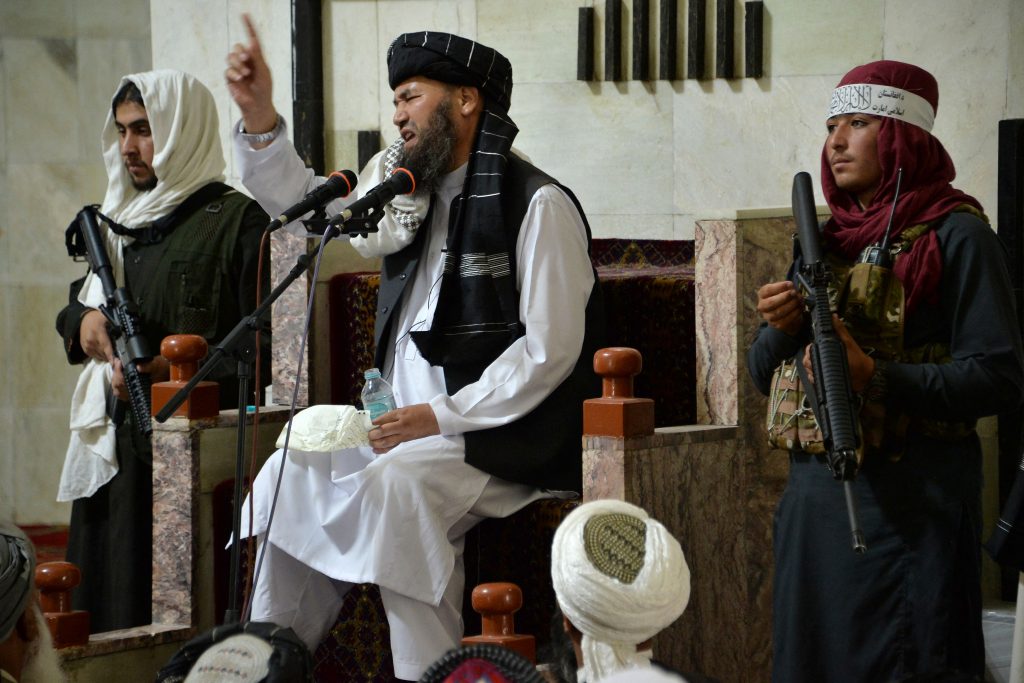
Within days of the September 11th attacks, President George W. Bush previewed what the United States would do in response. In an address before a joint session of Congress on September 20th, he promised to “direct every resource at our command,” including diplomacy, intelligence, law enforcement, and every necessary weapon of war – to the destruction and defeat of the global terror network.
There would be additional loss of life, and there would be setbacks. It would not be “one battle, but a lengthy campaign,” and he asked Americans for their “patience in what will be a long struggle.”
Though the long struggle of the war on terror has not ended, we now know some of the costs. A conservative estimate published in November 2019 by Brown University’s Watson Institute for Global Affairs put it at $5.4 trillion already spent, and another $1 trillion projected into the future – mostly for the care of veterans wounded in post-9/11 military operations. And that is only the amount borne by U.S. taxpayers; others around the world have paid an even heavier price. All told, estimates of the number killed range from 770,000 to 801,000, at least 312,000 of those civilians. In the nearly two years since that report was published, many thousands more have died in Afghanistan, Iraq, Syria, Yemen, and elsewhere.
If one had asked President Bush, or the tens of millions of Americans watching in September 2001, if they would be willing to pay such costs, and inflict such pain and suffering, in exchange for preventing a repeat of the 9/11 attacks, some surely would have said yes. The desire for vengeance was palpable. The United States had suffered one of the most traumatic incidents in its history. The measures taken would have to be visible. The American people – and the world – needed to know that acts of terrorism on U.S. soil would not be tolerated, that retaliation would be swift and severe. And, in the process, the terrorists would learn the futility of their enterprise – or die trying.
In 2003, Secretary of Defense Donald Rumsfeld wondered, “Are we capturing, killing or deterring and dissuading more terrorists every day than the madrassas and the radical clerics are recruiting, training and deploying against us?”
The more visible parts of the war on terror involved every branch of the U.S. military. Everything from bombings to targeted killings aimed to degrade terrorists’ ability to organize, recruit, and train. On a much larger scale, the United States launched the war in Afghanistan to dislodge al Qaeda and punish the Taliban for harboring them. And, just 18 months after the 9/11 attacks, the Bush Administration initiated a war in Iraq to remove Saddam Hussein from power.

Within a few months, the man at the forefront of the Bush administration’s counterterrorism efforts evinced some doubts. Noting that “we lack metrics to know if we are winning or losing the global war on terror,” Secretary of Defense Donald Rumsfeld wondered, “Are we capturing, killing or deterring and dissuading more terrorists every day than the madrassas and the radical clerics are recruiting, training and deploying against us?”
In the years since, it seems, no U.S. official has managed to answer this critical question.
Domestic counterterrorism measures may have prevented some terrorist plots here in the United States, but the military components of the war on terror were intended to dismantle and destroy al Qaeda and other organizations with global reach. By that metric, authors A. Trevor Thrall and Erik Goepner observed, the war had clearly failed. The number of Islamist-inspired foreign terrorist organizations more than tripled from 2000 to 2015, and the number of terrorist attacks and fatalities also rose, and especially in the countries where the U.S. military had been most active.
The most consequential of the post-9/11 military campaigns, the wars in Afghanistan and Iraq, cost trillions of dollars and claimed hundreds of thousands of lives. But the precipitous collapse of Iraqi security forces to ISIS in 2014, and of Afghan security forces to the Taliban in 2021, are merely the latest reminders that armed nation-building rarely succeeds.
In the case of Afghanistan, in particular, there were unique complications associated with coordinating operations with allies, and with the corruption of local partners. Meanwhile neighboring states, especially Pakistan, refused to cooperate with the United States – and often actively undermined U.S. strategy.
In the years since, it seems, no U.S. official has managed to answer this critical question.
Nearly 20 years after the start of the U.S. war, it is reasonable to wonder whether the entire undertaking was actually essential to defeating terrorists. Tragically, it might actually have made the problem worse.
“Contrary to the intentions of the U.S. government,” Thrall and Goepner conclude, “as the war on terror has expanded, it has led to greater levels of terrorism.”
Meanwhile, fear of terrorism has remained stubbornly high throughout nearly all of the post-9/11 period; only recently have more proximate threats to human life and well-being begun to command greater attention. For example, notes RAND’s Michael Mazarr, the U.S. government is now also focused on stopping large-scale cyberattacks, ransomware events, and malicious disinformation. And, since March 2020, Americans have also grown more worried about a disease that, at its height, killed more people in one day than died on 9/11. In retrospect, some of the money spent on wars, airline passenger screening, or mass surveillance might have saved more lives if it had gone instead to public health.
Some worry that the investment of vast military resources to fight terrorists and non-state actors has been a costly distraction from a far more important task: competing with major nation states such as China and Russia. To be sure, in the period when the United States was expending considerable blood and treasure chasing terrorists around the world, other countries were focused mostly on internal improvements that better position them to address the most urgent threats of this century, from climate change to infectious disease. But the United States retains vast military capacity, despite the setbacks in Iraq and Afghanistan, and U.S. allies and partners also have ample capability and considerable will to defend themselves. And the most important elements of the contest between the United States and China will not be fought by militaries.
We can and should lament the costs and consequences of the two decade-long war on terrorism, even as we understand the impulse to avenge the losses on that horrible September day. But policymakers owe it to future generations to learn from past mistakes and commit to avoid the most egregious errors as they craft more effective policies to advance security and prosperity.
Christopher Preble is co-director of the Atlantic Council’s New American Engagement Initiative and the co-editor, with Benjamin Friedman and Jim Harper, of Terrorizing Ourselves: Why US Counterterrorism Policy Is Failing and How to Fix It.




